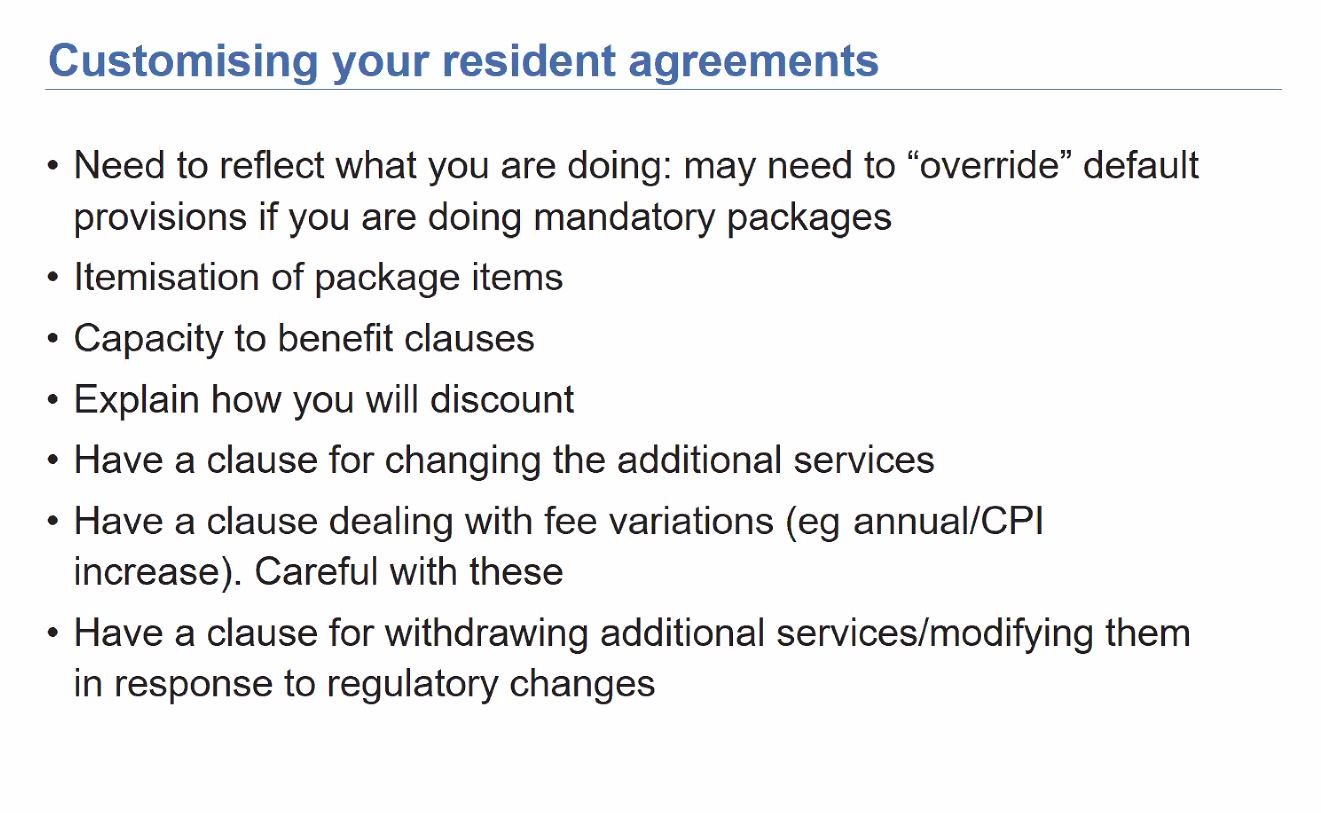Charging for additional services can be a lucrative way to boost bottom lines, but providers need to tread carefully to avoid potential litigation, a webinar has heard.
Presented by law firm Russell Kennedy and a consultancy firm last Thursday, the webinar looks at the risks, regulatory requirements and practical issues of successfully implementing and managing additional services.
Russell Kennedy Principal, Victor Harcourt, who was involved in the design of the Aged Care Act in 1997, noted that the section of the Act that deals with other care and services (56 (1) (e)) actually provides little details about what providers can charge consumers other than the responsibility not to charge more than the amount agreed beforehand.
The Government also actively encouraged providers to allow bundled services, he said, but relatively few providers offer this option.
Most providers offering additional services for free
Of 100 providers surveyed, 84% actively advertised their additional services, but only 30% offered bundled services while 70% were opt in/opt out.
83% of For Profits offered additional services – yet most were providing these services for free.
Viewers were told that they should only charge for services that they already provide – and target new residents.
For residents that are less able to afford additional services, the fee can be taken out of their RAD or a small nominal fee charged.
Regulator takes tough line on ‘benefit’ of additional services to residents
There are compliance risks however in establishing and additional services program or modifying a current one however.
 Russell Kennedy Principal Anita Courtney said it was important to itemise each service plus its cost in each agreement and invoice, but some invoicing software has difficulty with thus.
Russell Kennedy Principal Anita Courtney said it was important to itemise each service plus its cost in each agreement and invoice, but some invoicing software has difficulty with thus.
Anita added that the Aged Care Quality and Safety Commission (ACQSC) also takes the firm view that residents should not pay for any services that they do not benefit from.
Additional services can also only be renegotiated with the consent of the resident, which can be hard to obtain.
Prices need to be set out in resident agreements – and be flexible
In terms of pricing, Anita said resident agreements are key to setting out prices and should include a clause to change a resident’s service if circumstances change as well as a clause to vary the fees if you want to increase them on a yearly basis.
She is not a fan of clauses that simply give 28 days’ notice – instead providers should be more specific, for example, saying fees will rise by CPI or by 3% with 28 days’ notice.
“The more flexible a clause is, the less likely it is to hold up,” she stated.
“We’re recommending people have a clause that enables them to withdraw or modify additional services in response to regulatory changes.”
Solid advice.










